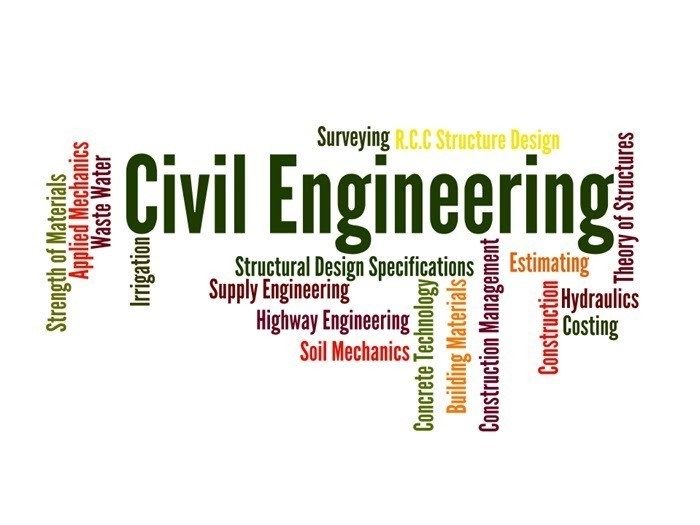
Engineering has been an aspect of life since the beginnings of human existence.
Civil engineering is a professional engineering discipline that deals with the design, construction, and maintenance of the physical and naturally built environment, including public works such as roads, bridges, canals, dams, airports, sewerage systems, pipelines, structural components of buildings, and railways.

Civil engineering as a discipline
Civil engineering is the application of physical and scientific principles for solving the problems of society, and its history is intricately linked to advances in the understanding of physics and mathematics throughout history. Because civil engineering is a wide-ranging profession, including several specialized sub-disciplines, its history is linked to knowledge of structures, materials science, geography, geology, soils, hydrology, environment, mechanics and other fields.
Branches of Civil Engineering
Civil Engineering possess huge scope and contains wide spectrum of sub-discplines. There are various fields within this engineering branch which you may choose to pursue your career. Below given is the list of Branches of Civil Engineering:

Construction Engineering
Deals with planning, construction and maintenance of structures.
Structural Engineering
Deals with Structural Analysis and Design of structures.
Geotechnical Engineering
Study of soil, foundations, bearing capacity, etc.
Transportation Engineering
Deals with planning, construction and management of transportation facilities.
Surveying
Deals with surveying and levelling of lands using various instruments, mapping & contouring of terrains, etc.
Water Resource Engineering
Deals with design and construction of hydraulic structures like dams, canals, water distribution system, etc.
Environmental Engineering
Study of environment friendly desings, sewage management, pollution and their treatment.
Municipal Engineering
Deals with urban/city planning & management, township, etc.
Coastal Engineering
Deals with coastal or marine structures like groynes (groins), embankments etc.
Tunnel Engineering
Deals with planning, design, construction, safety and maintenance of tunnels.
Earthquake Engineering
Study of seismic forces, earth-quake resistant structures etc.
Material Engineering
Study of Material Strength, properties of materials used in construction, ceramics, etc.
Civil Engineer Career, Salary and Education Information
What They Do: Civil engineers analyze, design, build, and supervise infrastructure projects and systems. one more major aspect is maintenance

Work Environment: Civil engineers generally work in a variety of locations and conditions. It is common for them to split their time between working in an office and working outdoors at construction sites so that they can monitor operations or solve problems onsite. Most work full time.
How to Become One: Civil engineers need a bachelor’s degree in civil engineering, in one of its specialties, or in civil engineering technology. They typically need a graduate degree and licensure for promotion to senior positions. Although license requirements vary by state, civil engineers usually must be licensed if they provide services directly to the public.
Salary: The median annual wage for civil engineers is $95,000. (It varies country to country and also depend upon engineer skills
Job Outlook: Employment of civil engineers is projected to grow 6 percent over the next ten years, about as fast as the average for all occupations. As infrastructure continues to age, civil engineers will be needed to manage projects to rebuild, repair, and upgrade bridges, roads, levees, dams, airports, buildings, and structures of all types.
Related Careers: Explore occupations that share similar duties, skills, interests, education, or training with the occupation covered in the profile.







